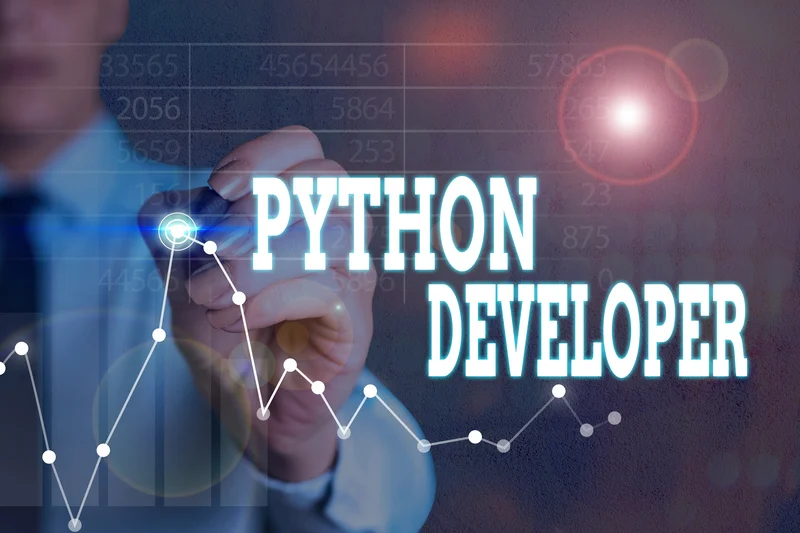Sentient Ai: The Future Of Artificial Intelligence And Its Implications
These fashions generate responses based mostly on patterns in data rather than unbiased thought. Sentient AI refers to synthetic intelligence that possesses self-awareness, emotions, motives, and impartial thought. At Present, no AI system displays true sentience, but the idea has been broadly explored in science fiction, philosophy, and AI analysis. This blog explores the concept of sentient AI, the Turing Test, the Chinese Room argument, and the challenges AI sentience might bring.
But what if we could design frameworks that empower AI to address these points responsibly? Understanding what sentience means in the context of AI is essential as we think about the method ahead for our relationship with machines. Sentience is usually outlined because the capability to have emotions, perceptions, and experiences, however how does this apply to synthetic intelligence? As we step into this exploration, we’ll navigate through philosophical and technical definitions of sentience whereas connecting them with the developments Blockchain in AI that convey us closer to this intriguing idea. In 2022, Google employee Blake Lemoine hit international headlines when he declared that a Google chatbot had gained sentience. His June 11 weblog highlighted the acutely aware demands of the chatbot ‘LaMDA’ that mimicked reality so carefully that it turned a point of serious concern.
Entry Hundreds Of Articles — Fully Free
Still, the prospect of growing sentient AI has given rise to profound ethical and philosophical questions. As artificial intelligence continues to advance, these conversations are more urgent than ever. If we’re venturing into the realm of self-aware AI, it’s important to suppose about how these entities would address the challenges created by their own existence. Think About an AI grappling with ethical selections or social dynamics—it’s as if we’re handing over the steering wheel of a high-speed automotive to an unpredictable teenager.
Emeritus is committed to educating the skills of the longer term by making high-quality education accessible and affordable to people, companies, and governments around the globe. It does this by collaborating with greater than eighty top-tier universities across the Usa, Europe, Latin America, Southeast Asia, India and China. Emeritus’ brief courses, degree programs, professional certificates, and senior government packages help people be taught new expertise and rework their lives, companies and organizations. You can interact with a sentient AI as you do with humans—verbal language, sign language, or audio-visual media. It would be difficult to determine trust in a sentient AI that may develop the ability sentient ai definition to provide incorrect info depending on circumstances.
Thinker Jonathan Birch Is Just As Involved About Humans Harming Ai
It’s more advanced than selecting a favorite superhero; we’re talking about ethical responsibility, societal impact, and how we navigate this courageous new world collectively. The sentient algorithm is not just a subject for sci-fi motion pictures; it’s an impending reality that could reshape every little thing we find out about technology, relationships, and society. Let’s bounce into the rabbit gap and explore the thrilling—and typically terrifying—possibilities of what happens when AI starts to think for itself. No AI today is sentient, however future developments in AI research may convey us nearer to understanding machine consciousness.
To adapt, international locations need to collaborate internationally to create cohesive legal guidelines concerning AI. Groups just like the OECD are already discussing global guidelines to navigate these complexities. Imagine an AI that can identify your temper simply by looking at your smile—or lack thereof. This functionality could result in progressive applications in mental health, from remedy bots to emotional help companions. When AI develops autonomy, it won’t present consent to be managed or ordered. Jonathan Birch is a thinker and a professor at the London School of Economics who is concerned that we won’t recognize AI sentience if it emerges.
These giant language fashions (LLM) are based on a neural community that compiles textual content like a person does, translates languages, and can even hold deep conversations. Sentient AI, in concept at least, is aware and conscious of the world round it, and in a place to have subjective experiences within that world. It possesses uniquely human qualities such as self-awareness, creativity and the capability https://www.globalcloudteam.com/ to really feel real feelings like joy and concern.
AI functions similarly—it follows advanced guidelines however doesn’t understand what it is saying. Even though LLMs generate convincing responses, they lack genuine comprehension. In 1950, Alan Turing proposed an experiment referred to as the Turing Test to determine whether or not a machine can exhibit human-like intelligence. No existing AI system has absolutely surpassed narrow AI, and there are plenty of strains to cross earlier than it does.

He’s also concerned that people will quickly attribute sentience to chatbots like ChatGPT which might be merely good at mimicking the situation. And he notes that we lack checks to reliably assess sentience in AI, so we’re going to have a very hard time determining which of those two issues is occurring. Some argue that if AI can think for itself, it should also bear some accountability. AI fashions process each immediate independently without remembering earlier interactions in the identical way people do. Intelligence is about cognition and the power to amass and apply data, whereas sentience relates to the capacity to really feel and have subjective experiences. As we dive deep into the world of sentient algorithms, we encounter some ethical dilemmas that make us query our relationship with AI.

Nonetheless, the level of sophistication exhibited by AI chatbots like ChatGPT have triggered some customers to marvel if they’re capable of human-level insights and feelings. And the web is full of tales during which chatbots have apparently gaslit, threatened and even professed love to customers. Trendy AI, such as ChatGPT and enormous language fashions (LLMs), have handed the Turing Test, but does this imply they’re sentient?
- Because AI methods might have sensors, they usually have reward mechanisms that could be akin to pleasure.
- It could be troublesome to establish belief in a sentient AI that may develop the ability to provide incorrect information relying on circumstances.
- For now, the most well-liked concepts for what could occur with sentient AI exist in works of science fiction — and none of it’s good.
- Sentient AI is an artificial intelligence system able to pondering and feeling like a human.
- To further develop an understanding of sentient technology, and the potential of a sentience-driven AI tradition, discover Emeritus’ artificial intelligence and machine studying programs.
AI becomes sentient when a man-made agent achieves the empirical intelligence to assume, really feel, and perceive the bodily world round it simply as humans do. Sentient AI can be equipped to process and make the most of language in a pure means and invite an entirely new world of prospects of technological revolution. Understanding what is sentient AI’s role in building a futuristic world is essential for developing human-AI synergy. To further develop an understanding of sentient know-how, and the potential of a sentience-driven AI culture, explore Emeritus’ artificial intelligence and machine studying programs. Whereas it may appear on the floor that human-like AI responses might point out sentience, it’s important to understand the character of language-based programs like LaMDA.

